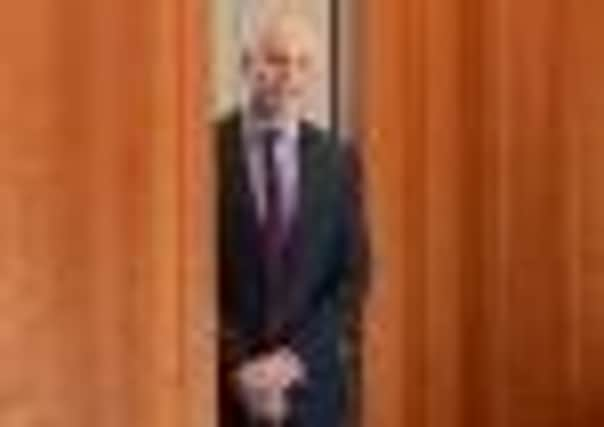Legal: Philip Rodney shares secrets with John Forsyth


By December 1 they were one. The story didn’t leak, he says, because the staff in both firms bought into it from the outset.
The merger appears to have been remarkably painless, though not necessarily simple. And it wasn’t secured at the first time of asking. “A number of companies had been knocking on the Paull & Williamsons door for several years and there were people knocking on ours too.
Advertisement
Hide AdAdvertisement
Hide Ad“We always let them in for discussion, but were not tempted. Then one morning last March I got an email from Paull and Williamsons saying, ‘when could we chat?’ I emailed back immediately, saying, ‘now!’
Philip Rodney describes it as alchemy – creating a new firm that was greater than the sum of its previous parts. “It wasn’t one of those ‘mergers’ driven by distress, whose business logic is to strip out duplication and administration. With regret, we did have a couple of redundancies but the aim has been to consolidate as a firm with a broader offering of services across the Scottish economy. We were servicing most of the sectors in the economy but the big one that was missing was oil and gas. Paull & Willamsons were the leaders in that field. There was a market in Aberdeen for some of our specialist areas like food and drink, private equity, renewables, financial services. We were not present in Scotland’s third city. It was a fit.”
So far it sounds like a fairy tale romance, slipping dainty feet into magic slippers. But this is business and these are lawyers. How does it really happen?
“Our strategy at Burness was to set out to be Scotland’s number 1 commercial law firm. We had high quality offerings in most of the areas that are important to the Scottish economy. About seven or eight years ago we were being criticised by others for not looking at London. We decided against that for a number of reasons,” says Mr Rodney.
“One was the objective we had set for ourselves in Scotland was a reasonable one. Being a bit player in the London market was not going to help achieve that. If you open in London that creates tensions within the firm – over remuneration and investment. We also had a lot of referral work form the London firms. The ‘magic circle’ firms and mid-market firms were referring good business to us. We were conscious that if we were to open in London, even if only in a small way, we’d become competitors and that was a line of business that could be switched off.
“We were also getting feedback from clients of firms that had opened in London that they were feeling unloved. The senior partners who used to attend to them were suddenly down in London trying to get something that was bigger and better. That may have been only perception on the clients’ part but it seemed unwise for us to ignore the sentiment.”
But it was still a pretty immodest aim to become Scotland’s No 1, even if not Scotland’s biggest firm. Where on earth did that come from? “You have to define yourself. It seemed a reasonable aspiration to be able to do the best deals, handle the heaviest litigation within the Scottish market. But, to be honest, we found ourselves sometimes saying to prospective clients ‘we may be smaller but we’re very good’.
“There was a sense that size was holding us back. A goodly proportion of our work is now with international clients and they need to be confident that they are dealing not just with a competent firm but a substantial one.”
Advertisement
Hide AdAdvertisement
Hide AdMr Rodney says that ambition and business aspiration has to be underpinned by organisation. “When I became chairman six or seven years ago we’d have photocopiers and mergers on the same agenda. It’s much easier for partners to take up meetings on operational matters. So we split the management and created an operations board responsible for day-to-day running of the business, and also a separate governance and strategies board. It was a deliberate decision to clear thinking space. We are always discussing strategy. It’s not opportunist discussion when something arises out of our control. I’m constantly writing papers testing what we are doing and what competitors are doing and what it is that the clients will require in two, three or five years time.”
Philip Rodney acknowledges a shiver went down his spine – along with that of every other lawyer in Scotland – when he heard of the Semple Fraser collapse.
“We can’t rely on the economy returning to what it once was so we constantly have strategy alternatives A, B C and D in play at some level,” he says. “Lawyers by nature aren’t gamblers. The more you keep an eye on what the clients are telling you, the less of a gamble it becomes.”